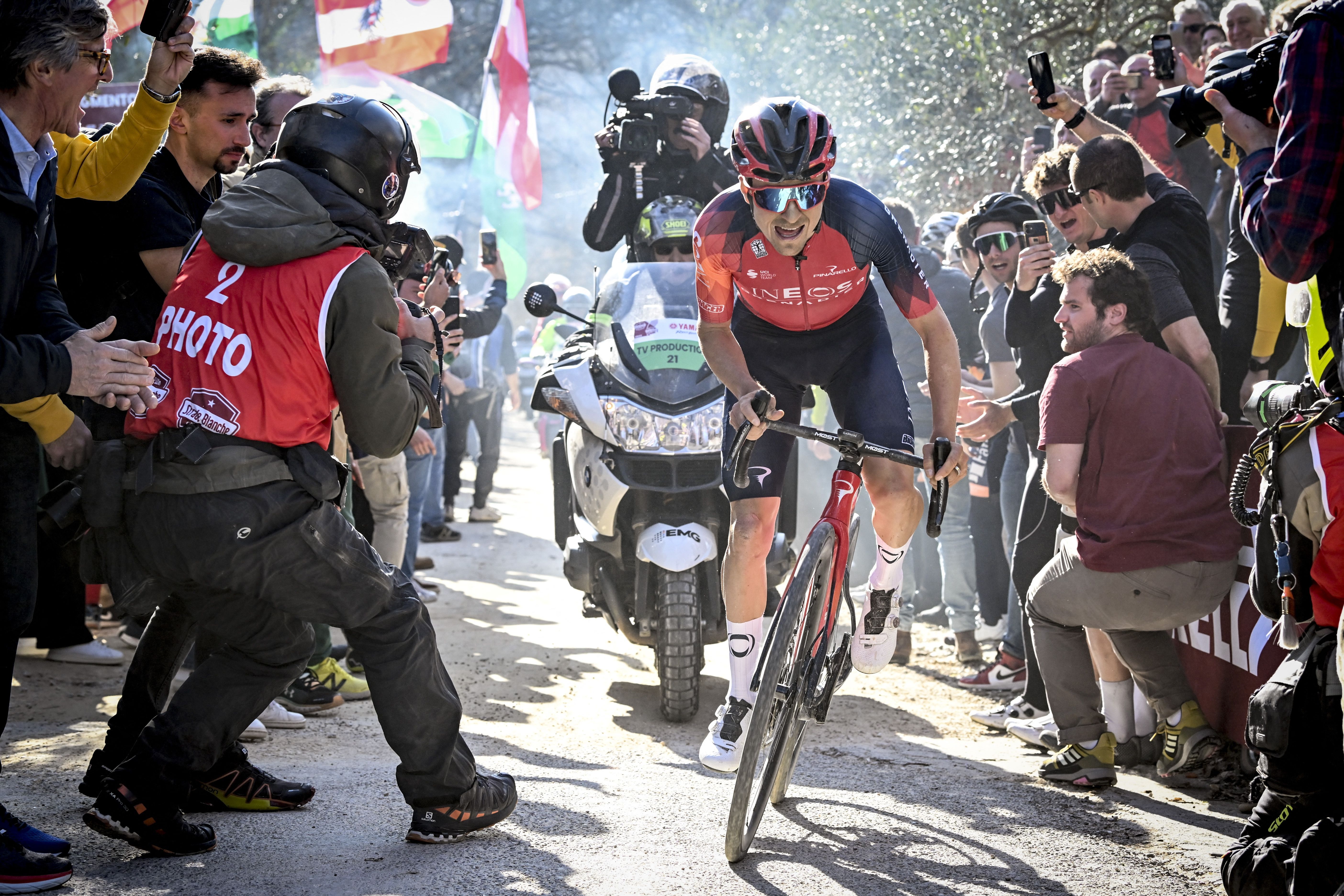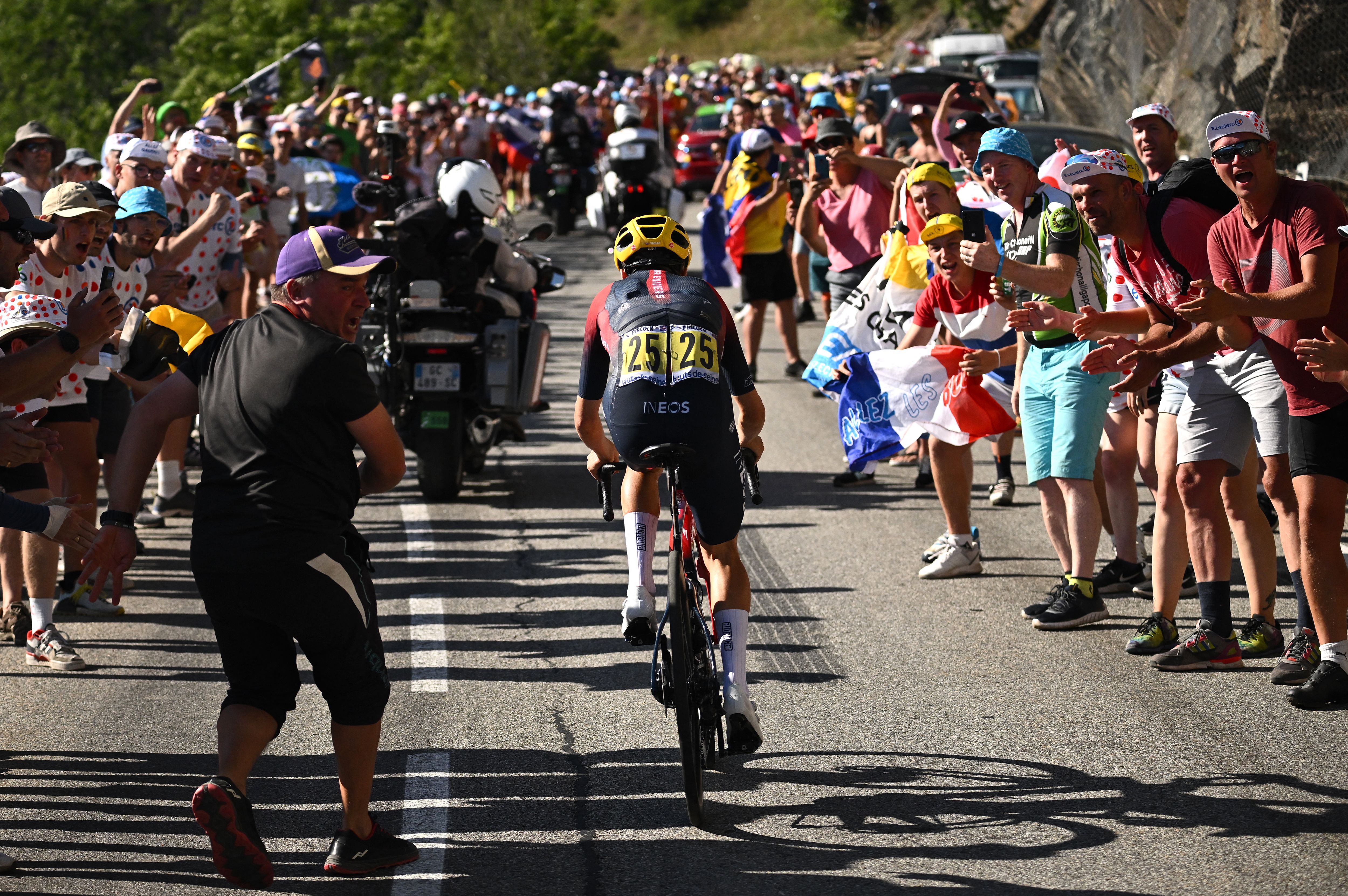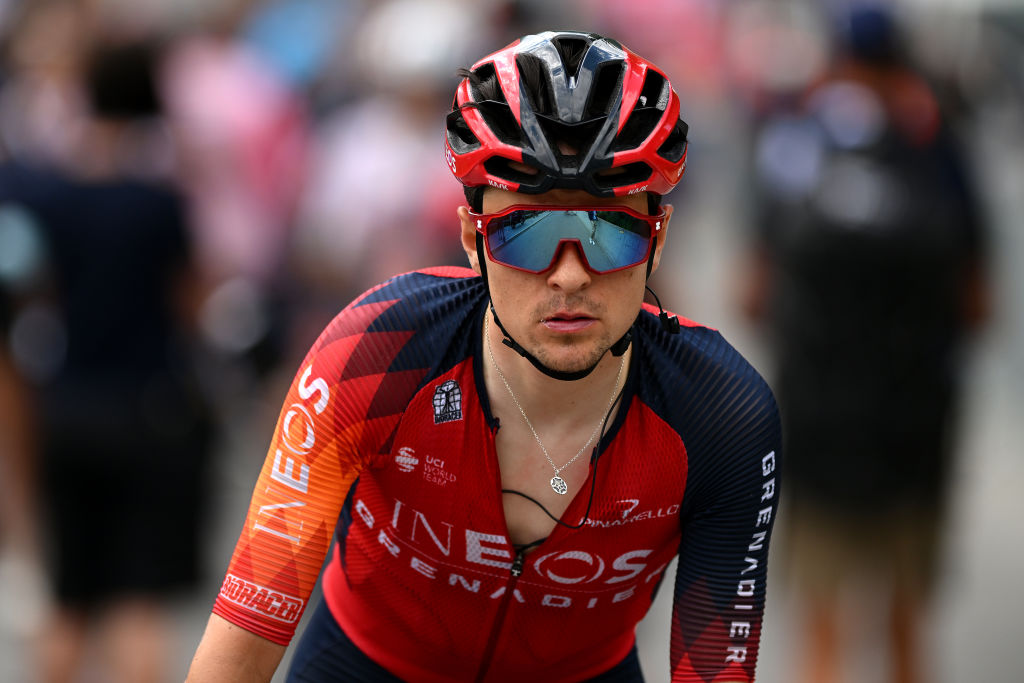
Tom Pidcock wasn’t part of the target audience for the recent Netflix series on the Tour de France, but it made him change the way he saw the race all the same. The power of streaming, perhaps.
Following his stylish victory at Alpe d’Huez on his Tour de France debut last year, Pidcock had designs on producing something even grander in his second appearance. It was only when he sat down to watch the episode centred on that win, however, that he began to realise its magnitude.
A mesmerising descent of the Col du Galibier that afternoon was followed by the calm dispatching of his breakaway companions on the lower slopes of the Alps, and in the flush of victory, it all seemed so straightforward. Watching it back on screen almost a year later reminded him that it was altogether more complicated. The feat won’t be easily replicated, far less surpassed.
“I thought after last year's race that with better preparation and by changing a few things, I could make a step up easily,” Pidcock says. “But then, after watching the Netflix thing, I saw my win last year was actually quite spectacular. So I think it might be quite hard to top that, to be honest.”
Then again, Pidcock has already experienced the demands of the Tour in a way no documentary could ever have shown him. He had raced over three weeks before, riding the 2021 Vuelta a España just after winning mountain bike gold at the Tokyo Olympics, but he had never competed against a field with anything quite like the depth he encountered at last year’s Tour.
Even for a man who spends his winters going toe to toe with Wout van Aert (Jumbo-Visma) and Mathieu van der Poel (Alpecin-Deceuninck) on the cyclocross circuit, the unfettered ferocity of the racing was still something of a shock. Welcome to the Tour de France.
“What surprised me was the intensity and just how every day is full gas. It’s like, ‘How is everyone able to keep waking up and do this everyday?’” Pidcock says. “And it is everyone. It’s not as though half the field are fucked and not in the race anymore: everyone is still so good every day. That really surprised me a bit, actually.”
Pidcock quickly suggested he was up to the pitch of the race, however, with fourth place in Longwy on stage 6. Even though he finished that day marvelling at the overwhelming strength of Van Aert – “He’s taking the piss, isn’t he?” Pidcock said beyond the line – he insists now that he never questioned his own ability to compete at that level.
“It’s not that I doubted myself,” he says. “I was just surprised.”

Twelve months on, Pidcock returns to the Tour with broadly similar objectives, namely chasing stage victories and learning a little more about his future GC prospects, but the ambient noise at Ineos is rather different.
In 2022, the team harboured clear general classification ambitions, and Geraint Thomas duly secured the third step of the podium. This time around, Ineos are looking to the overall standings more in hope than expectation, resigned to the overwhelming superiority of Tadej Pogačar (UAE Team Emirates) and Jonas Vingegaard (Jumbo-Visma).
The race likely comes a year too soon for Egan Bernal, who missed most of last season after suffering life-threatening injuries in a training crash in January, while Daniel Martínez’s early-season momentum has stalled, and debutant Carlos Rodríguez is still learning his trade. In theory, it means Pidcock should enjoy greater liberty this year to go on the attack and chase stage wins than he did in 2022.
“I think last year I had the freedom that we agreed on,” he says carefully. “In the first days I was there helping the team on the flat, and then when opportunities came, I had the freedom if I had the legs.
“This year, I think we have a team that is different to previous years. We don't have one of the favourites for the GC, put it that way, which is a new thing for us as a team, I think. But then again, I think it suits how I how I like to race.”
Pidcock is speaking via Zoom from a massage table in Andorra, where he has just completed his final heavy-duty training ride before the Tour. His girlfriend and dog will make the journey with him from there to Bilbao for the Grand Départ, and the punchy opening weekend in the Basque Country offers him two obvious early opportunities to nab a stage victory and contest the maillot jaune with men like Van Aert and Van der Poel.
“I want to try and win stages and see where I can where I can end up on GC,” Pidcock says, though it’s clear that, for now at least, the former takes precedence over the latter. “I think in my own in my own head, primarily, I want to win stages. That’s my biggest goal.”
Pidcock climbed strongly enough to finish 16th overall a year ago and at last October’s Tour presentation, he appeared to be toying with the idea of overtly targeting the general classification this time around. A winter and spring programme that saw him flit from cyclocross to the Classics to mountain biking seemed to indicate, however, that he is in no hurry to adopt the monomaniacal life of the GC man just yet.
Even though Pidcock incorporated a training block at Mount Teide into his preparation for the first time this year, his display at the Tour de Suisse, where he finished 22nd, left him with some misgivings about his GC prospects this July.
“At Suisse, I was not really where I thought or imagined I would be,” he admits. “But getting through Suisse without COVID is a nice addition to this year’s preparation, and I did some good work in Tenerife. My approach was a bit different, so it should help me to make a step this year – but let’s see.”
The Tour de Suisse was overshadowed entirely by the tragic death of Gino Mäder following his crash on the descent of Albulapass, while Pidcock's teammate Magnus Sheffield was hospitalised with concussion after a fall on the same downhill section. "Descending is something I love, but someone I race with died descending and it hit home quite hard," Pidcock says. "I guess we do what we can to mitigate the risks, but they'll never be gone."
Ineos’ reported courtship of Remco Evenepoel last winter illustrated the team’s eagerness - or desperation, perhaps - to find a leader capable of competing with Tadej Pogačar and Jonas Vingegaard at the Tour in the here and now, but one imagines that Rod Ellingworth, Steve Cummings et al must also be gently nudging Pidcock towards exploring his GC potential more fully. Pidcock himself, however, is reluctant to commit to the idea until he sees evidence that it will bear fruit.
“I think it’s always gradual,” he says. “I always need to be able to ‘see’ the next step before I do it. I need to imagine myself being able to win before I do win, if that makes sense. So that means making a step this year, and then maybe next year and the year after, or as long as it takes to achieve that goal.”

It would be wrong, however, to mistake Pidcock’s idea of making incremental progress at the Tour for a lack of ambition or belief. He hasn't been cowed, for instance, by the competition in the Classics.
Although his 2023 Spring campaign was interrupted by the concussion he sustained at Tirreno-Adriatico, Pidcock's victory at Strade Bianche the previous weekend was a confirmation of his potential in the biggest one-day races, and he would return from the lay-off to take podium finishes at both Amstel Gold Race and Liège-Bastogne-Liège.
Pogačar and Evenepoel, respectively, were the crushing winners of those races, but Pidcock bristles politely at the idea that his victors were simply on a different plane. The percentage points of form he lost during his time off the bike following his concussion didn’t help, after all.
“I certainly think that Pogačar put on display in Ardennes, but he was not untouchable,” Pidcock says. “At this level, I think every little bit makes a massive difference. Half a percent could be the difference between, well, winning and finishing outside the top 10. If you can sustain a certain power or pace for a few more seconds, then you can get over a climb.”
A thought to sustain him on the lonely hours atop Mount Teide last month, on the drive to Bilbao on Tuesday, and out on the road when the Tour gets underway on Saturday. “The first stage is already an opportunity,” Pidcock says. “I think it suits my characteristics.”







